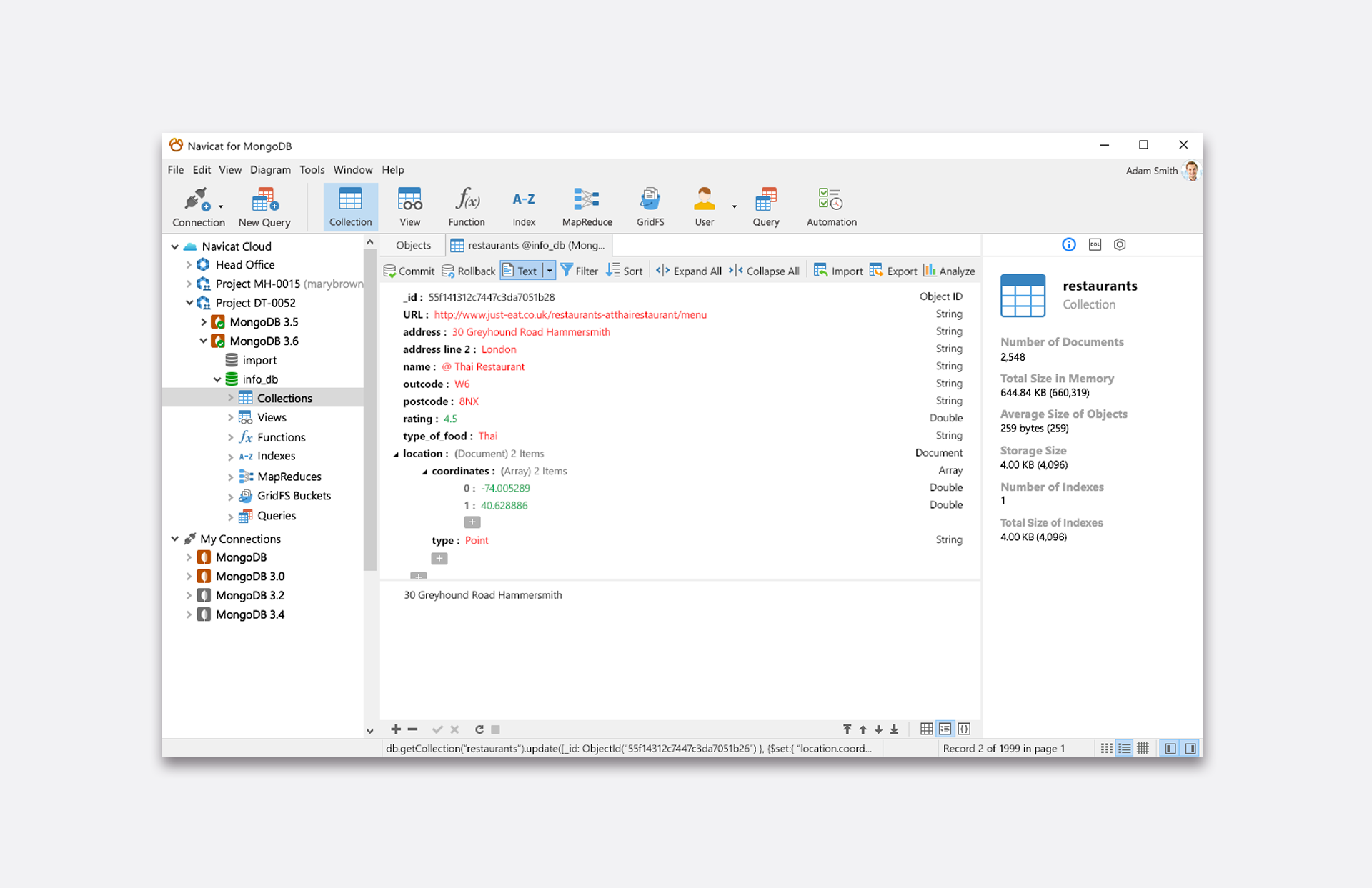MongoDB is a good choice for an MVP application. For a startup, it is important to appear on the market quickly to start getting information about users interested in the product and develop it. To do this, MVP applications are launched with a minimum of features. They should work quickly and stably, but at the same time, they should be able to tolerate even major changes within the structure and scale. With Mongo, you don't have to waste time on strict document formatting and avoid the problems associated with it.

MONGO DB
MongoDB is the most popular NoSQL document-oriented database management system. Mongo is used to quickly launch startups, create applications with unusual business logic, perform complex calculations, and store user data in online games.
Mongo was created in 2007 by developers of one of Google's divisions when they faced a task that was difficult to solve with the tools available to them. Today, the DBMS is used by eBay, Adobe, Squarespace Verizon, and many other corporations.
MongoDB is a NoSQL DBMS designed for the development of modern applications. It's flexible, easy to work with, and solves non-standard tasks.
While relational (SQL) databases organize information into tightly linked and structured tables, Mongo enters data into JSON-like documents. They will also have a structure and hierarchy, but less rigid. A simple example: storing user data that has not just one phone number and address, but several, without connecting extensions and other modifications. Working with such objects is intuitive for website and application developers, and the storage model itself is well suited for documents with unique data that changes over time, such as user profiles and directories.
In any case, you will have to use a database and a database management system for your website or application. Which one is better depends on the specifics of your project.
MongoDB is the most popular non-commercial NoSQL database. Data in it is stored not in strictly linked tables, but in JSON documents with information that does not necessarily have to have the same structure. The system stores data without a clear hierarchy and allows you to quickly access the information you need, and most importantly, group it in the way you need for your project. In MySQL and other relational databases, any non-standard solutions have to be designed manually, which takes longer and can have a significant number of errors. With Mongo, it's easy to record and store events and operational data. It doesn't matter if you receive information from sensors or comments and ratings from visitors, or if you store unique data from thousands of users - these are all cases where using mongodb is beneficial.
Instead of the classical SQL query language, MongoDB uses CRUD, which makes it easier to build simple queries. Moreover, its syntax is similar to the JavaScript language familiar to web application developers. To work with complex queries, developers will have a special interface that supports a large set of functions. The built-in Compass tool helps to find the necessary data faster and suggests how to solve the problem.
In the case of mongodb, the benefits start with the ability to increase the number of users of the program without limit. It doesn't matter if you need to transfer all documents with certain data to another server or just a part of your database - with Mongo, this is available out of the box and doesn't require setting up complex plugins. That's why it's used in games and startups - if the project takes off, you'll need to scale it quickly, and with Mongo, it's the easiest way to do it. The ability to freely increase the number of nodes in the database, which is partially achieved by reducing performance - the application will use more resources than MySQL and Postgres to solve the same tasks.
NoSQL databases and Mongo in particular always win in terms of functionality over relational databases because they were originally developed to solve specific problems with this data model, not as a universal tool. APIs, ACID transactions, and sophisticated search systems are just a small part of the features that will be immediately available to your developers, rather than requiring them to write their own solutions. Analytics in MongoDB is also available out of the box. BI Connector allows you to add your data from Mongo to any business intelligence tool that uses the MySQL protocol. This way, you can get complete information about the data you are interested in and the relationships between them, regardless of how and where it is stored. Users of MongoDB Atlas, Mongo's proprietary cloud storage, also have access to built-in analytics tools that can visualize data in real time and more.
MongoDB is a database designed for innovative applications. It is used as an alternative to classic bulky solutions or as a complement to them in complex projects. It is a flexible tool that is easy to work with and create modern it-products: fast and scalable, saving resources.
MongoDB has its pros and cons, but only in the context of the projects it is used for. If you need to quickly launch a startup application that can be modified and scaled as the number of users grows, Mongo is the best choice.
Ecommerce Development Services Ecommerce Development Services
We help to build a successful ecommerce business with flexible, scalable and custom solutions. Using our wide expertise, we guide companies through the complexities of ecommerce efficiently, with solutions that adapt to their unique needs.
